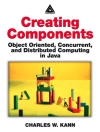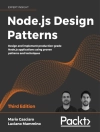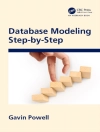This book presents new concepts as well as practical applications and experiences in the field of information technology for environmental engineering. The book has three main focus areas: firstly, it shows how information technologies can be employed to support natural resource management and conservation, environmental engineering, scientific simulation and integrated assessment studies. Secondly, it demonstrates the application of computing in the everyday practices of environmental engineers, natural scientists, economists and social scientists. And thirdly, it demonstrates how the complexity of natural phenomena can be approached using interdisciplinary methods, where computer science offers the infrastructure needed for environmental data collection and management, scientific simulations, decision support documentation and reporting.
The book collects selected papers presented at the 7th International Symposium on Environmental Engineering, held in Port Elizabeth, South Africa in July 2015. It discusses recent success stories in eco-informatics, promising ideas and new challenges from the interdisciplinary viewpoints of computer scientists, environmental engineers, economists and social scientists, demonstrating new paradigms for problem-solving and decision-making.
Tabela de Conteúdo
Contribution of Mobile Phones to Township Livelihood Outcomes in the Western Cape Province of South Africa.- An Application to Support Sustainability Management in the Cuban Energy Sector.- A Framework for Environmental Management Information Systems in Higher Education.- Support for Improved Scrap Tire Re-use and Recycling Decisions.- Risk Profiling for Corporate Environmental Compliance Management.- Designing for Engagement – A Case Study of an ICT Solution for Citizen Complaints Management in Rural South Africa.- An Analysis of the Perceived Benefits and Drawbacks of Cloud ERP Systems: A South African Study.- Collaborative Network Platform Solution for Monitoring, Optimization, and Reporting of Environmental and Energy Performance of Data Center.- Using Social Media to Improve Environmental Awareness in Higher Education Institutions.- Sustainability Reporting by South African Higher Education Institutions.- A Living Lab for Optimising the Health, Socio-Economic and Environmental Situation in El Salvador.- Modeling the Intention to Use Carbon Footprint Apps.- Mass Customization – Sustainability of a Computer-Based Manufacturing System.
Sobre o autor
Jorge Marx Gómez studied Computer Engineering and Industrial Engineering at the University of Applied Science in Berlin, Germany. He was a lecturer and researcher at Otto-von-Guericke-University Magdeburg where he also obtained a Ph D degree in 2001 in Business Information Systems. From 2002 to 2003 he was a visiting professor for Business Informatics at the Technical University of Clausthal, Germany and worked as a lecturer in different countries. In 2004 he received his postdoctoral lecture qualification for his work on ‘Automated Environmental Reporting through Material Flow Networks’ at the Otto-von-Guericke-University Magdeburg. Since 2006 Jorge Marx Gómez is a full professor and chair of Business Information Systems/Very Large Business Applications (VLBA) at Carl von Ossietzky University of Oldenburg. His research interests include Business Information Systems, Federated ERP Systems, Business Intelligence, Big Data, Interoperability, Environmental Management Information Systems and e- and Mobile Commerce.
Brenda Scholtz (Ph D) is a senior lecturer at the Nelson Mandela Metropolitan University (NMMU) in Port Elizabeth, South Africa. Brenda has worked in the IT industry for over 15 years as programmer, systems analyst, consultant and IT manager. She was awarded her Ph D in ERP skills and education in 2012. Her research interests include IS education, specifically in the field of ERP systems, business process management, enterprise systems, enterprise architectures and environmental information systems. She is currently serving as project manager for several research collaboration programmes between South Africa and Germany. Brenda is a member of the Association for Information Systems (AIS) as well as the Business Architecture Guild and has published several papers in international journals and conferences.












